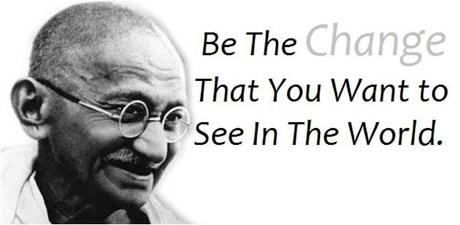A Moderate Wall
a blogbook by Brad Duncan
Chapter 2
The Tower of Control
I hope you liked the parable. Like a children's story it leads us to follow the progression in thinking of the characters, through their failures and toward redemption. The first failure is a common one for all of us. When we are given challenges, stresses, and resources to handle them, one way we can react is to grab hold tightly of anything that can give us control. When we respond to need and pain with control and structure, we are trying to apply our own power to overcome the obstacles we face. I can think of many situations in relationships where good intentions to help another person lead to trying to force control on that person. "Here, let me help you. Here, you should do it
this way..."
In groups, human tendencies are even more dangerous! The need to control and overcome leads to a need to institutionalize, as a way to set up power over enemies, to fight hardship, and to organize and distribute resources. When we institutionalize worship of God, we replace genuine seeking and spirituality with something that looks like worship, but is a replacement for true relationship. When we institutionalize emulating God's character, we create rules and expectations, that are erroneously connected with being spiritual. We think we need to be correct, pleasing, conforming, even popular, in the expectations of our social, religious system, in order to be right with God.
In the story of Kog, the attempt to control fails. It fails, I suppose, because control creates revolt within and war without. Those that resist the control will most likely topple the tower and declare victory.
The Isolating Wall
The second failure comes from a more reasonable, moderate, attempt to gain control. Instead of forcing everyone to submit to centralized leadership, instead, let's try isolating ourselves from outside influences, shutting out bad things, and basking in the glory of our own view of ourselves. This failure is also a common human reaction. We can retreat, observe, and shore up our defenses, making sure that we protect our own kind. In relationships, we avoid risks, maybe staying to ourselves in order to protect ourselves from harm. In groups, we look for comfort among those that are similar to us, so that we fit it, they fit in, we all fit in. The hope is that this low risk approach will avoid conflicts and protect from harmful influences from outside. We all do it -- in our families, within the walls of our own houses, don't we defend against outside intrusion while protecting those of us within? In our schedules, jobs and associations, don't we group together with like-minded folk where we feel safe and accepted? In this way, we gain control of the chaotic world around us and fill our lives with safe havens. We can relax, we can enjoy, we can relate, and hopefully we can prosper, within these safe confines. But as we all know, minimizing risk can also minimize reward. Our most brilliant moments in life are not these safe ones, but the ones where we found courage, embraced change, and took risks. Isolationism leads to loneliness in the end. It doesn't end well. Risks, courage and change are required for healthy life and relationships.
In groups, isolationism is prone to its own risks. Corruption within can easily take over. A wrong idea, and leader with bad intentions, or a lack of resources can easily drive a group to desparation and possible collapse. Even when things are going well, the limited perspective that we have due to isolation from outsiders can drive us into miserable, selfish complacency. We can come to see tiny problems as giant mountains, while missing the true problems and challenges of the world outside. It looks like bickering, complaining, infighting, power struggles, and basically just driving one another crazy! Meanwhile, inside the walls of isolation, we become less useful, less concerned, less able, and less relevant. The world outside doesn't care about us, in our walls, because we don't care about them. The world is divided into "Us" and "Them".
Eventually, if we are lucky, the wall cannot stand the pressures from inside and out. The isolationism doesn't hold together, and the outside world comes crashing in. The wall crumbles. The safety and comfort is lost. The community collapses. And we are alone once more, in a crowd of people that don't understand us.
The Hope of Peace
Is there another solution? Can we find a secure place to live, with comfort for ourselves, stable social structures, secure cultural idenity, without building a tower of control or a a wall of isolation? The solution must be a way of peace. We must find our identity in a place where we can embrace others with a peaceful posture. What can be built that brings both security and peace? The people of Kog found that this was possible. Peace was the solution. It brought side-effects of security and wealth. It was risky, but it avoided the problems that come from controlling the world around us.
Can we find a peaceful solution to the chaos around us? Can we seek peace in relationships, peace in social settings, and peace in our spirituality? The parable offers hope that peace can be found. Join me as I continue to explore how this can occur.
Previous Chapter
Chapter 1































